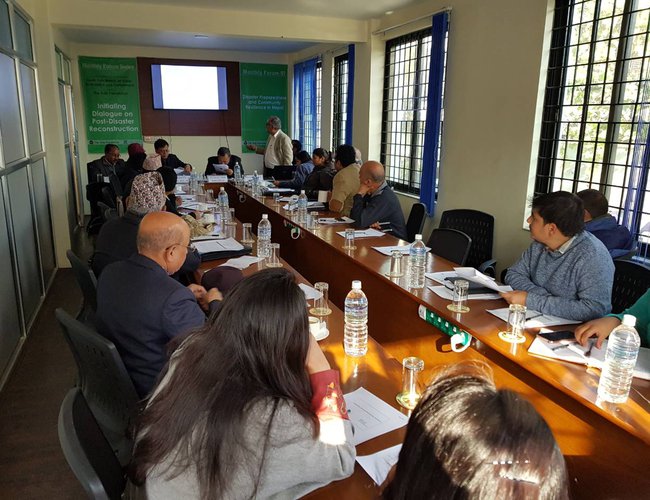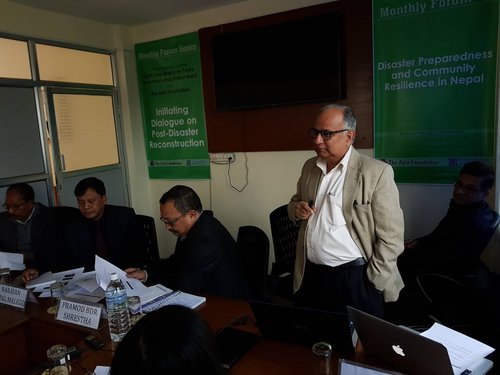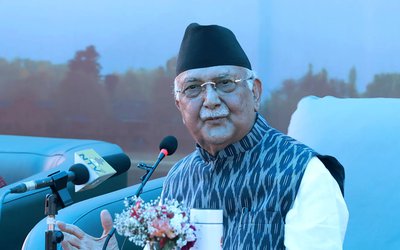
Ajaya Dixit, Executive Director, Institute for Social and Environmental Transition (ISET)-Nepal said community resilience depends highly on the disaster-affected community’s accessibility to resources that help them mitigate the adverse shocks and their impacts. Adding to that, he said, when an already vulnerable community becomes exposed to the hazards such as earthquake or floods then getting back to feet is harder.
The Natural system, such as forest, vegetation etc can revert back to their pre-damaged status on their own but human-built system such as infrastructure cannot, that is where resilience of the community matters, he said.
Presenting his paper on Disaster Preparedness and Community Resilience in Nepal,” Dixit explain theoretical approach with experiences of Nepal in various major disasters.
Organized by SAWTEE under the project ‘Initiating a dialogue on Post Disaster Reconstruction Experience ‘undertaken with support from The Asia Foundation (TAF), the experts present at the forum stressed that community resilience could only be achieved through collective effort.
This is a sixth discussion forum Making the presentation on ‘Unpacking and operationalizing resilience’.
Similarly, Basanta Raj Gautam, former Chief District Officer of Kathmandu, said that community are overburdened with disaster preparedness but they lack funds, at the same time, communities do not have access to related information, which is essential to build a resilient community.
Dr.Prem Nath Maskey, earthquake expert, pointed out that Nepal adopts crisis management only but hardly prepares for disasters during normal times. Similarly, Dr. Amod Mani Dixit, Executive Director, National Society for Earthquake Technology (NSET), pointed out that the narrative of resilience in Nepal has never been able to include insurance service which is of utmost importance.
The chief guest of the program, Narayan Gopal Malegu, Former Secretary, Government of Nepal, said the recent act on disaster management, provisions for multi-tiered structural management of disasters —from community level to central level —which should effectively address the hazards related to disasters. He emphasized on the role of government as well as individuals in facing the challenges.
Giving his remarks as the chair of the programme Prof. Dr. Pramod Bahadur Shrestha, Former Professor of Institute of Engineering, said community resilience is much higher than the sum of individual resilience. Further emphasizing on resilience, he said that though resilience and sustainability are not synonymous, there is a link between them. Resilience has also been emphasized on Sustainable Development Goals (SDGs).The reason that world has shifted from Millennium Development Goals to SDGs is to include multidimensional aspect with the focus not only on economics but social and environmental aspects also.
Some 30 participants from various organizations, including research institutions, experts, activists and development partners, participated in the event.
- India’s External Affairs Ministry’s Senior Officials Says Indo-Nepal relations are ever expanding
- Jul 05, 2025
- Bhutan Government Unveils Three Pronged Strategies To Tackle Skilled Migration Crisis
- Jul 05, 2025
- Weather Forecast: Generally Cloudy Across The Country With Heavy Rain At One Or Two Places Bagmati And Koshi Provinces
- Jul 05, 2025
- FNCCI President Dhakal Urges British Companies to Invest in Nepal
- Jul 04, 2025
- Nepal Is Expected To See 60,000 People Infected with Dengue This Year
- Jul 04, 2025















